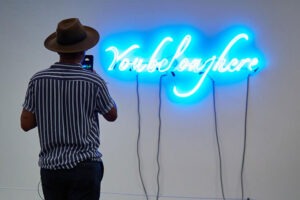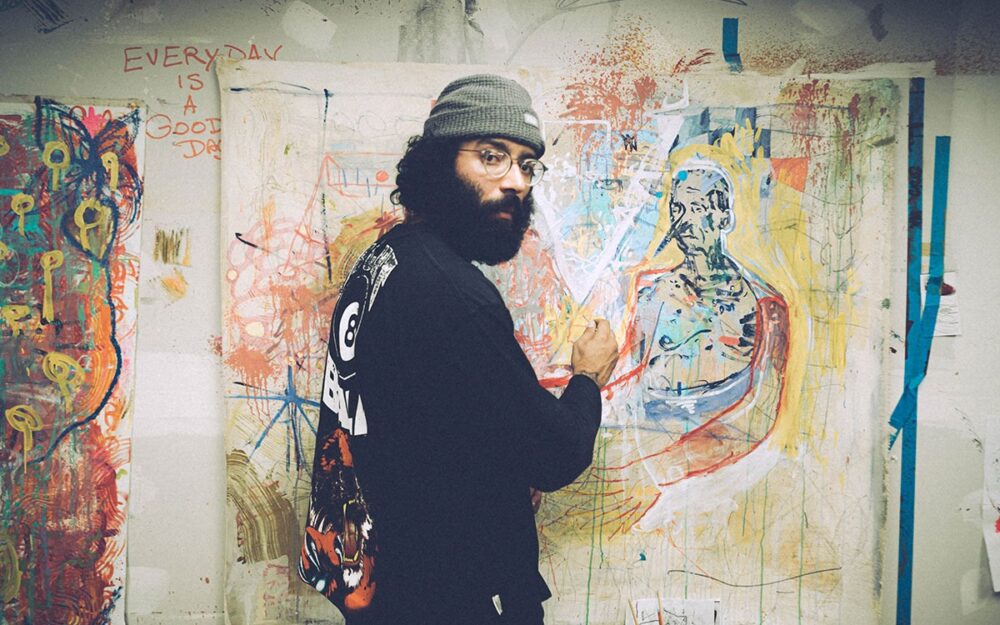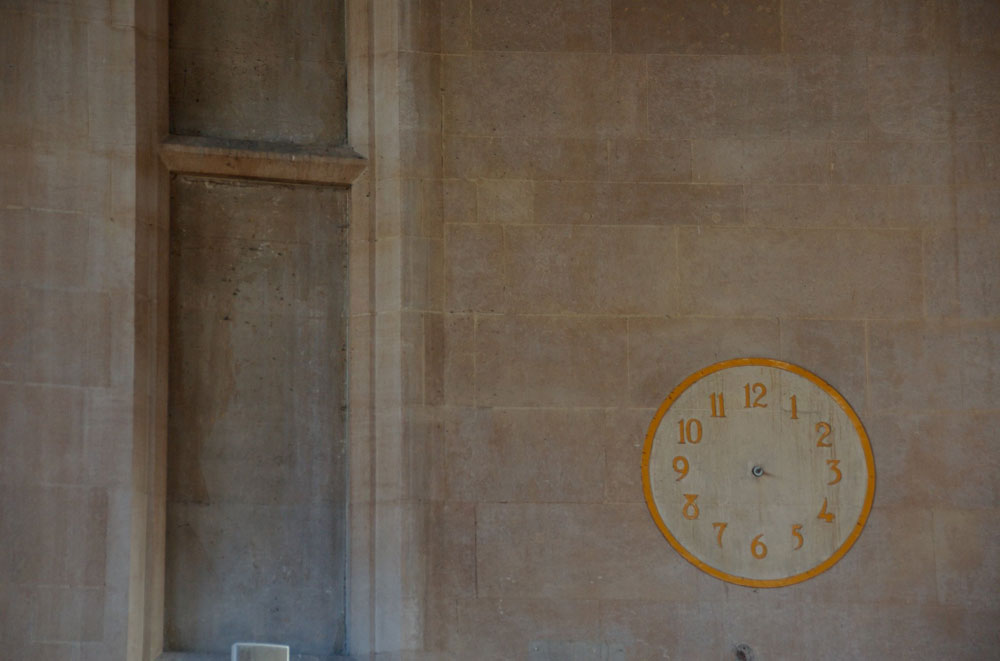
The word “f**kery” has a unique meaning that we need to consider more when we are watching public discourse on race in this country. The meaning, as we use it, is to destabilize (and sometimes harm) through the use of a confounding frame. Let’s take a recent example.
Last month, Kassy Dillon, a Republican and founder of a conservative student media platform targeting millennials, heard boos from the crowd as she walked the stage at her graduation at Mount Holyoke College. After graduation, Dillon wrote a widely-read thread on Twitter describing how being booed at her graduation was the latest in a long line of four years of challenging experiences, in which she was ridiculed and bullied for her conservative views.
Dillon had decorated her graduation cap with Trump/Pence, National Rifle Association, Republican elephant stickers, and other symbols. In an interview last week on WBUR, Dillon said, “When I was going to receive my diploma, I was expecting people to be looking at me because I had some political messages on my cap. And so, as I’m walking across the stage, I hear some booing and it shocked me. I was confused. I was expecting looks. I wasn’t really expecting a boo…and as I’m walking off to walk around to go back to my seat, in my head I’m like, ‘Did that really just happen?’”
In the interview, Dillon walks a tightrope, attempting to balance a seemingly innocent, open-minded stance with her conservative worldview. When asked by host Meghna Chakrabarti what her values are, she responds, “That’s the loaded question…The main thing for me is free speech…I’m also fiscally conservative…I’m also pro-life and I’m very pro-Israel…I want criminal justice reform, which is something I agree with a lot of my peers on, especially on campus.”
Dillon is advocating for what the far right calls “ideological diversity.” She says a healthy debate isn’t happening on campuses right now and blames this on “leftist bias,” which she explains this way: “When you get into a classroom, your professors automatically assume that you aren’t a conservative. So they’ll make blanket statements that they just assume you already agree with.”
Dillon says she didn’t expect “the whole leftists bias on campus, and that’s because my family didn’t have any experience of college.” Then she eagerly offers to share the thinkers she “definitely look[s] up to.”
The first is Ben Shapiro, a conservative commentator and writer, former editor-at-large of Breitbart News, anti-Trump conservative, and host of his own self-titled popular podcast. He’s well known for his 2004 book Brainwashed: How Universities Indoctrinate America’s Youth about the lack of “ideological diversity” in US colleges and universities. (Hmmm…her biggest influence is a leading figure in the far right’s battle against academic “leftist bias,” but she didn’t expect it?)
There’s also Kentucky Senator and Libertarian Rand Paul, who battled Trump for the Republican nomination for President. The New Yorker describes the Libertarian Party platform as calling for the abolition of “all federal income taxes and virtually every federal agency, including the IRS, the FBI, the CIA, the FEC, the EPA, the FDA, and the SEC. The party also opposed Medicaid, Medicare, Social Security, public education, and minimum-wage and child-labor laws.”
United Nations Ambassador Nikki Haley, who recently blasted the UN Office of Human Rights for critiquing Trump’s “zero tolerance” immigration policy, rounds out Dillon’s list. She says she hopes Haley will be president one day.
When Chakrabarti says, “You know, there’s so much ugliness in American politics right now, and to be honest with you, Kassy, I think some of the ugliest stuff comes from President Trump,” Dillon responds, “I don’t think it’s going as bad as most people thought it would,” to which Chakrabarti replies, “I suppose there’s a lot of debate over that.”
Sign up for our free newsletters
Subscribe to NPQ's newsletters to have our top stories delivered directly to your inbox.
By signing up, you agree to our privacy policy and terms of use, and to receive messages from NPQ and our partners.
Chakrabarti then asks, “How do you think we can move forward as a nation to have better conversations with each other if the president of the US very frequently is the source of the ugliest and most hateful language and rhetoric on a weekly if not daily basis?” To which Dillon responds, “Yes, I do think he says some things that are rude, but I think he gets a lot of hate as well, so I think it’s hate versus hate and I think that everyone needs to settle down a little bit and have real conversations.” But it seems Dillon has a hard time integrating information in a conversation, or having a counterargument that addresses the argument, evidence, or point put forth by the other—in this case, Chakrabarti.
Dillon goes on, “I have to say that the people who make general statements about me and attribute all these horrible ideas to me have never met me before. They’ve never talked to me, but instead they just attack me online, or shout things to me as I’m walking to class or if I’m sitting in the dining hall. So mostly people just don’t know me, and I wish that during my four years a lot of these students would’ve asked to just get coffee and get to know me better.”
Chakrabarti says, “What’s interesting about that is…I’ve heard, for example, African Americans, Latino Americans tell me that they wished that people would sit down with them and just get to know them and talk with them before shouting racial epithets to them on the street here in Boston, for example. So, this call for not making presumptions about folks and having conversations instead, what do you think about that?”
Dillon sidesteps this with, “I don’t like comparing the conservative issues on college campuses to the struggles of minorities…I think the minority struggle is definitely different and a lot worse.”
It’s like there’s no logic, which one could argue is a basic prerequisite of debate. Dillon’s points don’t add up to a coherent story. She is supportive of two governments that are violating basic human rights, namely Israel (against Palestinians) and the US (against black people and immigrants, to name a few), and she is interested in having “healthy debate” with people who are different, hopefully without touching upon their “minority struggles.” Healthy for whom?
How does one have a conversation across ideology when one side thinks the basic human rights of the other are debatable? The Supreme Court decision last week in favor of the Colorado baker, Masterpiece Cakeshop, and against the gay couple trying to buy a cake for their wedding shows what happens when one person’s “ideological diversity” runs up against another’s rights. A few days later, Tennessee hardware store owner Jeff Amyx hung up a sign at the entrance stating gays aren’t allowed in his store. This isn’t a conversation, it’s a diatribe.
Large donations from the Koch brothers to colleges and universities for “ideological diversity,” including $77 million from Charles Koch in just 2016 alone, support this double-talking “movement” for the right of white people to determine the rights of people of color, and it seems to be having an effect. The Association of Colleges & Universities, a nonprofit with a mission “to advance the vitality and public standing of liberal education by making quality and equity the foundations for excellence in undergraduate education in service to democracy,” in an article titled, “Broadening Our Definition of Diversity,” notes that significant progress has been made in improving the racial and ethnic diversity of its institutions. Colleges and universities are now 73 percent white, down from 90 percent 40 years ago. Its author, Dr. Tori Haring-Smith, former president of Washington & Jefferson College, believes that with this “progress” we can now turn to “ideological diversity.” She writes, “As we promote inclusive excellence on our campuses, our admissions processes must consider not only race and ethnicity, but also class and ideology.” But how are they measuring progress on a mission that includes the word “equity”?
In a recent New Yorker article about the Koch brothers, Jane Mayer writes,
Instead of just funding candidates, Charles [Koch] set out to subsidize an ideology. He aimed to change the way Americans thought by creating and funding an interlocking array of libertarian think tanks, advocacy groups, and academic, legal, and other organizations…Charles declared, “Our movement must destroy the prevalent statist paradigm.”
In this time of blandly and blithely delivered scurrilousness, we must actively call out white supremacy masquerading as free speech. This is not an innocent moment that took someone graduating from a four-year university unaware, but a tactic in a strategy to dominate.













